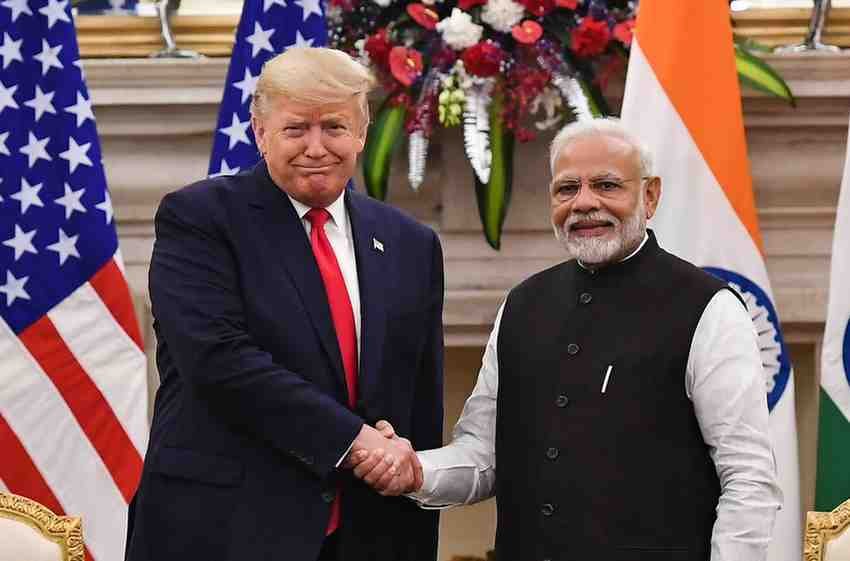PM Modi Expected at UNGA as Trade Tensions Flare
Prime Minister Narendra Modi is likely to address the 80th session of the United Nations General Assembly (UNGA) in New York next month, amid heightened trade frictions between India and the United States. According to a provisional list of speakers released by the UN, Modi is scheduled to deliver his speech on the morning of September 26. His appearance will come just three days after US President Donald Trump is expected to address the opening of the high-level debate on September 23.
The annual UNGA session is considered the busiest diplomatic gathering of the year, drawing world leaders from across the globe to engage in high-stakes discussions on pressing international issues. This year’s meeting will take place against a backdrop of escalating global conflicts, including the ongoing Israel-Hamas war and the prolonged Ukraine-Russia confrontation.
UNGA 2025: Modi and Trump in Rare Same-Stage Moment
The provisional schedule places Modi in the same session as several other significant leaders, including those from Israel, China, Pakistan, and Bangladesh. The rare overlap between Modi and Trump at the UNGA comes just months after the two met in Washington, D.C., in February 2025 for a bilateral summit at the White House.
Following that meeting, both sides announced plans to work toward the first stage of a Bilateral Trade Agreement (BTA) by fall 2025. The proposed deal aimed to ease market access and strengthen strategic economic cooperation between the two democracies.
However, hopes of a smoother trade trajectory were jolted earlier this year when President Trump imposed an additional 25% tariff on Indian imports tied to Russian oil purchases. This move brought the total tariffs on certain Indian goods to a steep 50%, a decision India’s Ministry of External Affairs (MEA) condemned as “unjustified and unreasonable.”
Tariff Dispute Threatens Trade Talks
The additional tariffs were announced via a presidential executive order just weeks ahead of the next round of India-US trade negotiations. A US delegation is set to arrive in India on August 25 for the sixth round of talks on the BTA, with both countries still targeting an initial agreement by October or November this year.
Despite the strain, Indian officials have signaled they remain committed to dialogue. “Like any major economy, India will take all necessary measures to safeguard its national interests and economic security,” the MEA stated in response to the tariff hike.
Washington’s move is widely seen as a signal of Trump’s intent to pressure trade partners over geopolitical alignments, particularly those engaging economically with Russia. New Delhi, meanwhile, has maintained that its energy purchases from Moscow are guided by strategic and economic considerations rather than political alignment.
A High-Stakes Diplomatic Season
The UNGA’s high-level week, scheduled from September 23 to 29, traditionally opens with Brazil, followed by the United States. This year’s agenda will be dominated by global security concerns, economic recovery challenges, and debates on climate change.
For India, the UNGA session offers an opportunity to articulate its stance on global governance reform, equitable economic growth, and security cooperation. Modi’s address is expected to highlight India’s role as a voice for the Global South, advocate for reforms in multilateral institutions, and address pressing geopolitical conflicts.
Diplomatic observers note that the optics of Modi and Trump speaking at the same UNGA session—albeit on different days—will attract significant global attention, given the current state of trade relations. Both leaders are known for using international platforms to reinforce domestic narratives while signaling their foreign policy priorities.
Potential for Side Meetings
While no official announcement has been made, there is speculation about possible sideline interactions between the Indian and US delegations in New York. Such an engagement could provide an avenue to reduce tensions and set a more constructive tone ahead of the crucial BTA negotiations.
The UNGA will also serve as a platform for India to engage with a broad range of partners, including those in Africa, Latin America, and Southeast Asia, as it continues to expand its diplomatic footprint beyond its traditional spheres.
With global crises and trade disputes converging in one of the most watched diplomatic events of the year, Modi’s visit to New York is poised to carry both symbolic and strategic weight. Whether the trip becomes a turning point in India-US relations or a missed opportunity will depend largely on the tone set in these high-profile speeches and any behind-the-scenes diplomacy.








